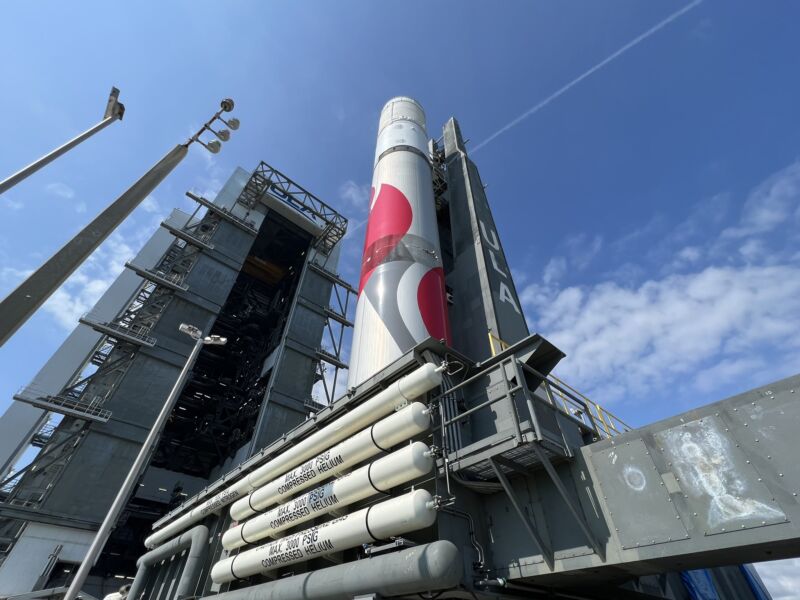
United Launch Alliance will not see the debut of its next-generation Vulcan rocket in 2023, as previously planned.
The launch company’s chief executive, Tory Bruno, announced the delay on the social media site X on Sunday. United Launch Alliance had been working toward a debut flight of the lift booster on Christmas Eve, from Cape Canaveral Space Force Station in Florida.
Bruno made the announcement after the company attempted to complete a fueling test of the entire rocket, known as a wet dress rehearsal.
“Vehicle performed well,” Bruno wrote. “Ground system had a couple of (routine) issues, (being corrected). Ran the timeline long so we didn’t quite finish. I’d like a FULL WDR before our first flight, so XMAS eve is likely out. Next Peregrine window is 8 Jan.”
Peregrine is the rocket’s primary payload, a lunar lander built by Astrobotic that is intended to deliver scientific experiments for NASA and other payloads the Moon. It has specific launch windows in order to reach the Moon and attempt a landing during ideal lighting conditions.
From the information contained in Bruno’s comment, it appears as though the work to correct the ground systems to fuel Vulcan—the first stage propellant is methane, which United Launch Alliance has not worked with before—will take long enough that it will preclude another fueling test ahead of the rocket’s late December launch window. Thus, the next launch attempt will likely occur no earlier than January 8.
A light cadence
It has been a slow year for United Launch Alliance, which dominated the US launch industry a decade ago. The company is going to launch just three rockets this calendar year: the classified NROL-68 mission on a Delta IV Heavy rocket in June, the “Silentbarker” mission for the National Reconnaissance Office on an Atlas V in September, and two Project Kuiper satellites for Amazon on an Atlas V in October.
That is the company’s lowest total number of launches since its founding in 2006, when the rocket businesses of Lockheed Martin and Boeing were merged.
Part of the reason for the low total is that United Launch Alliance is undergoing a transition from its historical fleet of Delta and Atlas rockets to Vulcan, which is intended to be more price competitive with other commercial offerings, such as SpaceX’s Falcon 9 and Falcon Heavy rockets. There will be a lot of demand for Vulcan once it starts flying regulary.
However, another factor is that the lower cost and equally reliable Falcon rockets have taken commercial and government launch business away from United Launch Alliance. SpaceX has steadily ascended over the last decade as United Launch Alliance has struggled to compete.
Whereas Bruno’s company launched just three rockets in 2023, on a handful of occasions SpaceX has launched three rockets in three days during this calendar year. SpaceX is likely to end the year with between 95 and 100 total launches.
https://arstechnica.com/?p=1989907

